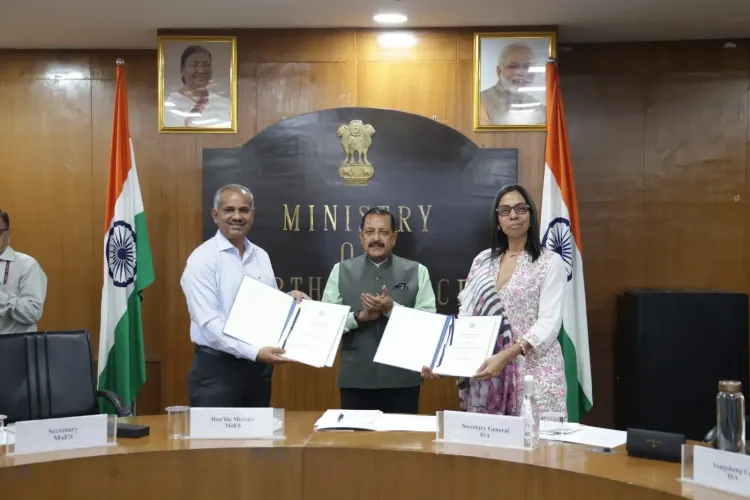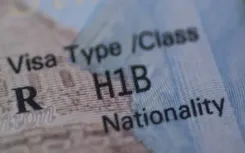Has India Achieved Exclusive Rights to Explore Polymetallic Sulphides in the Indian Ocean?

Synopsis
Key Takeaways
- India is the first country to secure exclusive rights for Polymetallic Sulphides exploration.
- The exploration area covers 10,000 sq km in the Indian Ocean's Carlsberg Ridge.
- This milestone reinforces India's leadership in deep-sea resource exploration.
- Polymetallic Sulphides are rich in valuable metals.
- India's partnership with ISA has evolved over a 30-year period.
New Delhi, Sep 20 (NationPress) In an unprecedented achievement, India has emerged as the first nation globally to obtain exclusive rights for the exploration of Polymetallic Sulphides (PMS) in a designated area of 10,000 sq km located in the Carlsberg Ridge of the Indian Ocean, as announced by Union Minister of State (Independent Charge) for Earth Sciences, Dr. Jitendra Singh on Saturday.
Dr. Singh revealed the signing of a new 15-year agreement between the Ministry of Earth Sciences (MoES) and the International Seabed Authority (ISA) granting these exclusive rights.
This milestone makes India the first nation worldwide to hold two contracts with ISA for PMS exploration, underscoring its leadership role in the field of deep-sea resource exploration and strengthening its strategic presence in the Indian Ocean, he stated.
“This new contract is a pivotal advancement towards achieving the vision of the Deep Ocean Mission initiated by PM Narendra Modi, which emphasizes seabed mineral exploration, the development of mining technology, and bolstering India’s Blue Economy initiatives,” Dr. Singh remarked.
“By formalizing exclusive rights to explore PMS in the Carlsberg Ridge, India has further solidified its leadership in deep-sea research and exploration. This will augment our maritime presence and enhance national capacity for future resource utilization,” he continued.
Polymetallic Sulphides are rich in valuable metals such as iron, copper, zinc, silver, gold, and platinum, and are formed by hot hydrothermal fluids emanating from the oceanic crust.
Their strategic and commercial importance has drawn global attention, positioning India at the forefront of deep-sea resource exploration.
Reflecting on India’s enduring partnership with ISA, Singh noted that India was the first nation to receive an area for the exploration of polymetallic nodules in international waters and was designated as a “pioneer investor.”
With two PMS contracts currently in place—one in the Central Indian Ridge and Southwest Indian Ridge, and another in the Carlsberg Ridge—India has the largest exploration area allocated for PMS in the International Seabed.
“India’s 30-year relationship with the ISA has been a point of pride, and as ISA marks its 30th anniversary, India reaffirms its dedication to collaborating closely with ISA to fulfill its mandate for the common heritage of humanity,” Singh stated.
He also announced that India will host the 8th ISA annual contractors meeting from September 18-20 in Goa, further solidifying India’s leadership in seabed exploration.
“This establishes India as the first member state and government contractor of ISA to possess two PMS exploration contracts. It is also a point of pride that India now holds the largest area allocated globally in the International Seabed for PMS exploration,” stated Dr. M. Ravichandran, Secretary of the Ministry of Earth Sciences.
He emphasized that India anticipates strengthening its cooperation with ISA to enhance scientific understanding of unexplored seabed ecosystems, while ensuring effective protection of the marine environment, all while harnessing mineral resources for the benefit of humanity.





